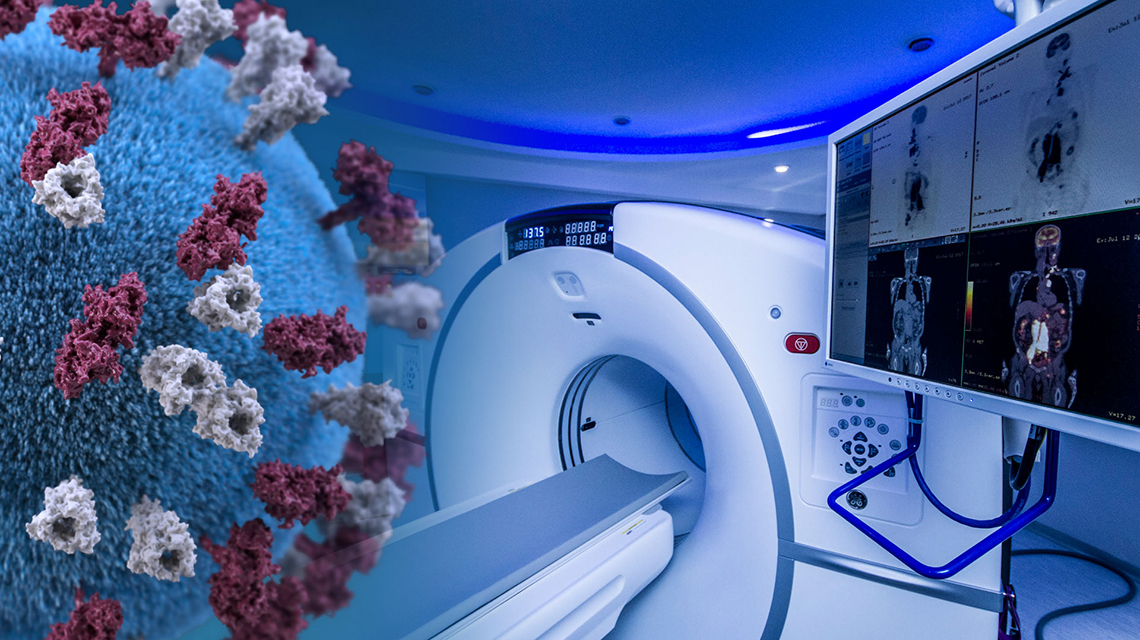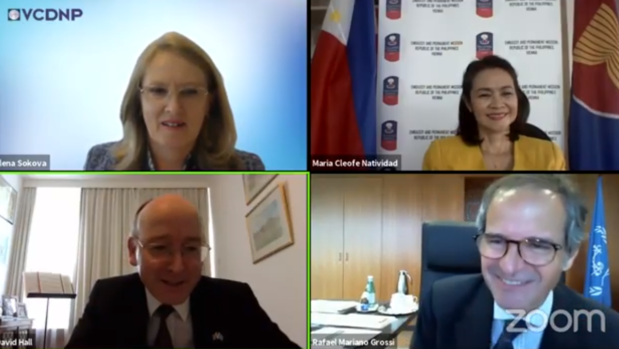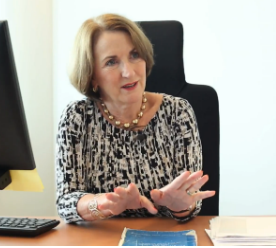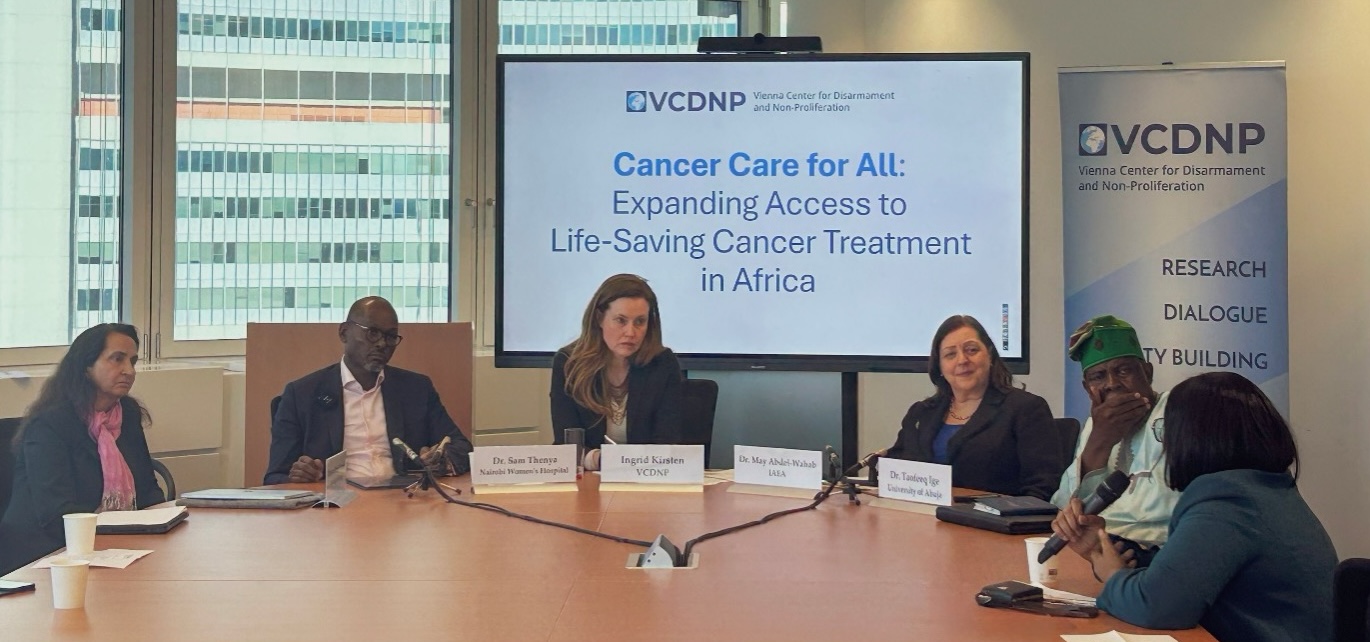
The COVID-19 pandemic has highlighted the critical importance of international cooperation during a global crisis. Since the beginning of the pandemic, the International Atomic Energy Agency (IAEA) has contributed to strengthening the international community’s response by providing equipment and training on diagnostic techniques, providing personal protective equipment and other measures. Though COVID-19 has kept much of the world in lockdown, the IAEA continued most of its safeguards activities, in cooperation with Member States, despite distancing measures and restrictions on travel.
On 15 July 2020, the VCDNP hosted a webinar to discuss the Agency’s response to COVID-19, featuring IAEA Director General Rafael Mariano Grossi, Ambassador Maria Cleofe Natividad of the Philippines and Ambassador David Hall of the United Kingdom.
Three priority areas related to the IAEA's work during the COVID-19 pandemic emerged during the discussion: (1) continuing the IAEA's vital work in safeguarding nuclear material and facilities; (2) cooperation with and assistance to Member States to curb the spread of the virus; and (3) sharing expertise to ensure the safe and secure operation of nuclear facilities while much of the world is under teleworking arrangements.

On Maintaining Safeguards
Having determined that safeguards activities must continue, from 1 March to 31 May 2020, the IAEA conducted 274 inspections, 29 design information verifications and 16 complementary access visits. This required the cooperation of Member States to help overcome such obstacles as travel restrictions, border closures and unavailability of commercial flights.
With financial assistance from France, Germany, the United Kingdom and the United States, IAEA inspectors were able to travel using chartered planes, often to areas with high numbers of COVID-19 cases. All three panelists remarked on the resilience of IAEA inspectors, as well as on the professionalism of the IAEA staff overall.
On Technical Assistance
The IAEA's role in the mitigation of pandemics has grown. While many think of the IAEA only as a "nuclear watchdog," all the panelists highlighted the Agency's important work in technical cooperation as it relates to disease control. Ambassador Natividad remarked that the Philippines had no domestic testing capability at the beginning of the COVID-19 pandemic, necessitating the shipment of samples to Australia for diagnoses. The Philippines is one of 123 countries that appealed to the IAEA for assistance in obtaining the necessary diagnostic equipment.
The current pandemic is the first time the IAEA has been in the center of a global health crisis and Director General Grossi described the Agency’s response as "the largest assistance operation mounted by the IAEA in its history." Among the equipment and expertise provided to countries, including the Philippines, has been the real time reverse transcription-polymerase chain reaction (real time RT–PCR) technique, which can identify the genetic material of the virus in infected persons. Ambassador Natividad called the RT-PCR technique the gold standard in COVID-19 diagnosis. However, RT-PCR requires a piece of laboratory equipment called a thermocycler, which can cost between € 15,000 and €20,000 per unit. Thanks to generous contributions from a number of Member States, including the United Kingdom, the IAEA is able to facilitate the delivery of thermocyclers and other critical laboratory and protective equipment to Member States to diagnose and prevent the spread of infectious diseases.
In addition, the IAEA, in cooperation with Member States, has launched the Zoonotic Disease Integrated Action (ZODIAC) project to establish a global network to help national laboratories in monitoring, surveillance, early detection and control of animal-borne diseases. The ZODIAC project is meant not just to mitigate the effects of COVID-19, but also to increase capacity to combat future pandemics.
On Expertise Sharing, Safety and Security
Another area where COVID-19 presents unique challenges is ensuring the safety and security of nuclear facilities and material. To facilitate the exchange of information and expertise in this field, the IAEA rapidly developed the COVID-19 NPP OPEX Network, that operates daily and receives reports on safety and security from operators maintaining nuclear facilities worldwide. In this regard, the IAEA has conducted emergency response exercises to make sure counterparts can respond under the circumstances of reduced shifts and telecommuting.
Watch the panel discussion in full here:

